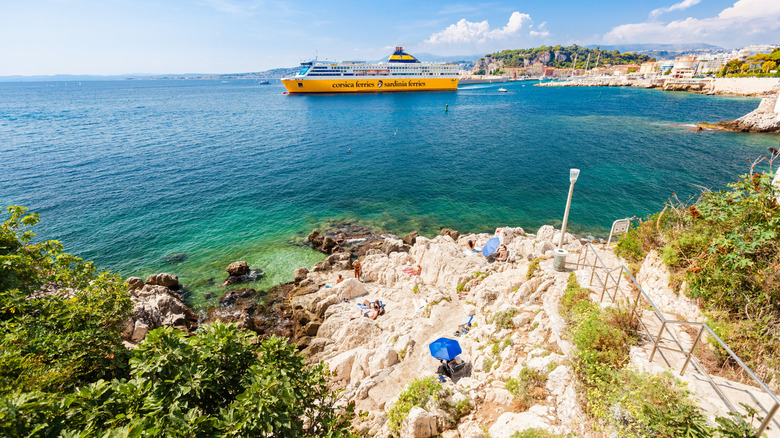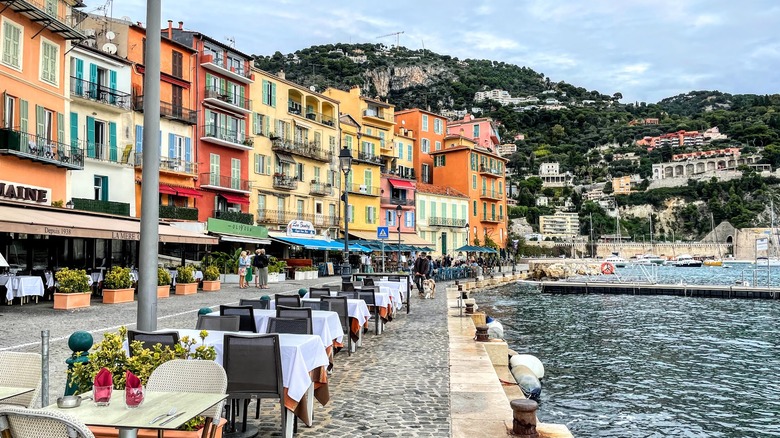A Bold Plan To Combat Overtourism Could Reshape Mediterranean Cruises
While plenty of travelers desire to go off the beaten path, well-known beloved destinations still attract tourists in droves. After all, these places are usually popular for good reasons. However, large numbers of tourists not only means overcrowded attractions, it can also mean damaged or disturbed landmarks and natural spaces. These obviously affect locals too, but locals in popular destinations also have to deal with increasing housing costs and a loss of local community. In order to combat this overtourism phenomenon — which seemed to hit new heights in 2024 – the city of Nice on the French Riviera is considering a ban on large cruise ships.
Nice mayor Christian Estrosi wants to ban ships larger than 620 feet in length and carrying more than 900 passengers from docking in Nice, starting as early as summer 2025. "These cruises that pollute [and] that pour out their low-cost customers who do not consume anything and who leave their rubbish behind them," Estrosi told The Times, "well I say these cruises don't have a place here." Estrosi estimates that the ban would lead to a 70% decrease in the number of cruise tourists. Nice has already worked hard to limit construction along its portion of the famous Côte d'Azur, and Estrosi does not want to undermine these efforts by allowing the detrimental effects of cruise ships to continue.
Cruise ship limits would also affect Villefranche-sur-Mer
While Nice rarely sees ships larger than Estrosi's proposed limit, ships carrying well over 900 passengers arrive to the port at the colorful beach town of Villefranche-sur-Mer more often, with some ships carrying up to 3,500 passengers. Villefranche-sur-Mer is considered part of the greater Nice area and has already seen a decrease in cruise ship docks. If the ban does become law, big ship operators who will have to rethink their Mediterranean routes include Royal Caribbean, Norwegian Cruise Lines, Holland America, Celebrity, Cunard, and Viking Cruises — which comes in just over Estrosi's limit, with most of its fleet at a capacity of 930 passengers. The ban may be slow to take effect, however: Major cruise companies plan out their routes far in advance, with their passengers purchasing tickets in advance, too.
As is the case with many components of the tourism industry, the issue of pollution versus profit comes into play with these ban proposals. Ecologists are encouraging such a ban, as large cruise ships emit as much harmful sulphur dioxide into the air as 30,000 cars (per The Times). On the other hand, local businesses disagree with Estrosi's belief that cruise ship passengers "do not consume anything," and they actually rely on the revenue that these passengers bring. Cruise ship bans or restrictions have already taken effect in Venice, Santorini, and more.

